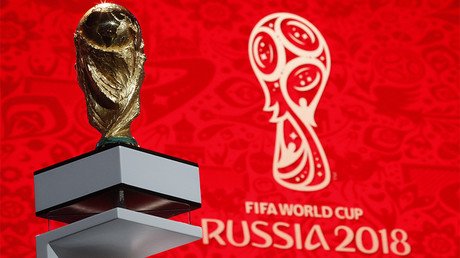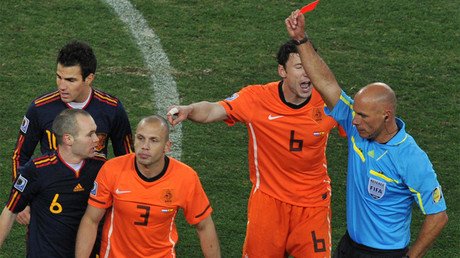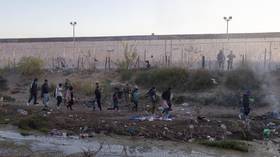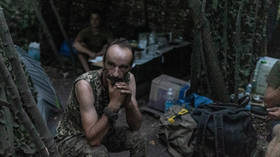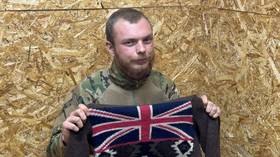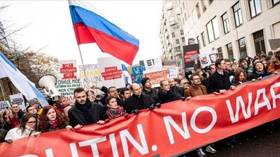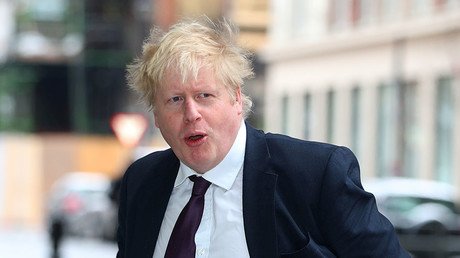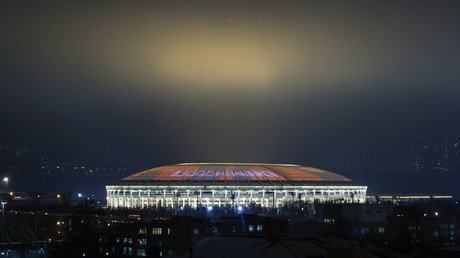1980 redux: Neocons try to sabotage a sporting festival in Russia once again
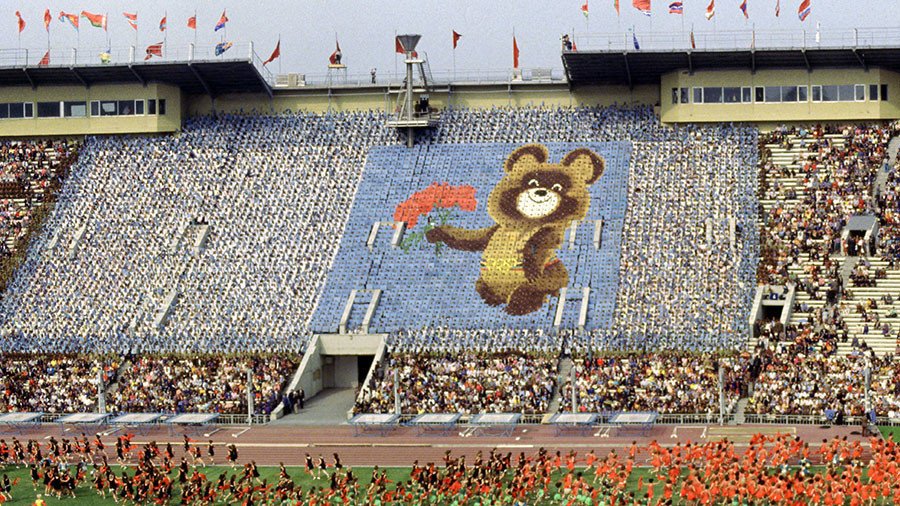
This summer the football World Cup will be held in Russia for the very first time – and the US and its closest allies are doing everything possible to ruin it. Sound familiar?
In 1980, exactly the same thing happened when the Soviet Union hosted the Olympics for the first time and the US led a boycott.
The more things change, the more they stay the same. 1980 is 38 years ago now, but the geopolitical parallels with 2018 are striking. Like today, foreign policy hawks were behind a campaign to sabotage a major sporting event being hosted in Russia. In both cases a leading Western nation, in 1980 the US, and in 2018 England, had lost out to the Soviet Union/Russia in the bidding process. Prominent Western figures on both occasions compared the Soviet Union and Russia's hosting of the events to Nazi Germany's hosting of the 1936 Games.
The pretext for sabotaging the XXII Summer Olympiad was the Soviet "invasion" of Afghanistan, which took place in December 1979. This was denounced as a "brutal" act of aggression by UK Prime Minister Margaret Thatcher. But it was not what it seemed. The Soviet Union had fallen into a trap – one set for it by US President Jimmy Carter's fiercely anti-Russia National Security Adviser, Zbigniew Brzezinski. As I explained here, the US had started backing Islamist fighters hostile to the secular government in Kabul BEFORE the Soviet tanks rolled in – a policy which would have long-term global ramifications. Brzezinski admitted that he had got Carter to sign the first order for secret aid to the "rebels" in July 1979.
"I wrote a note to the president in which I explained to him that in my opinion, this aid was going to induce a Soviet military intervention," Brzezinski said.
And so it did. According to some reports, it was Rolf Pauls, West Germany's ambassador to NATO, a man who had lost an arm when fighting for the Wehrmacht in the Soviet Union in World War II, who first raised the idea of an Olympic boycott.
President Carter called for the Games to be cancelled, moved, or postponed. When he was criticized by the International Olympic Committee, he too called for a boycott.
"It's extremely important that we not in any way condone Russian aggression. We must recall the experience of 1936, the year of the Berlin Olympic Games. They were used to inflate the prestige of… Hitler," the President declared. Again, doesn't that sound familiar?
The US wasn't just interested in being a lone voice; as always they wanted as many countries as possible to follow their lead. Margaret Thatcher was certainly up for it.
"It would be wrong for those people and countries which deplore aggression to cooperate in giving the Soviet Union the success it is seeking," she announced.
But to their credit, the British Olympic Association – and its chairman Sir Denis Follows – held firm in their belief that geopolitics and sports should not mix. Follows stayed loyal to the Olympic ideal even after Mrs. Thatcher wrote to him asking that the BOA "accept the advice" of the UK government "in this matter."
There was also pressure on individual athletes, such as leading middle-distance runner Seb Coe, not to go. Coe, who went and won gold in Moscow, later said that "the clinching moment" which hardened his resolve to take part, was hearing Follows, "a classic Northern Tory, being described in the Commons as basically a dangerous communist."
In the end, over 60 nations boycotted the Games, while others boycotted the opening ceremony, or only sent one athlete to it by way of protest. In the build-up to the big event, the coverage was as negative as it is about the World Cup today. In an 'Opinion' piece in the Sunday Telegraph Magazine of July 13, 1980, American journalist and novelist George Feifer wrote: "I am convinced that British attendance at these Olympic Games is a pitiful mistake… It is as well to know that whatever is seen by a visitor to the Games will give a superficial and well-orchestrated picture of life in that country and hide the disillusion and unhappiness."
It's interesting to note that Feifer doesn't mention Afghanistan – the stated reason for boycotting the Games – once in his article. But he does use phrases that you'll see in similar pieces about why we shouldn't be going to the World Cup in Russia today, such as "restrictions on freedoms and rights," "cheating," "intimidation of the West." In fact, you could simply take out the words 'Olympic Games,' 'Soviet Union,' and 'socialism' from the article and put in 'World Cup' and 'Russia' and you'd have a ready-made column for Rupert Murdoch's Times in 2018.
The Salisbury poisonings are the 'Afghanistan' of 2018 when it comes to sabotaging this year's major sporting event in Russia. But even without the Skripal case, where Russian involvement has most definitely not been proved, there'd be something else. The "invasion" of Ukraine. The "aggression" against Georgia. The "doping scandal." "Gay rights." Take your pick. The passing of a law by the Russian Parliament which prohibited the promotion of homosexuality to minors was the pretext used to undermine the Winter Olympics in Sochi in 2014. US President Obama, Vice President Biden, Canadian Prime Minister Stephen Harper and French President Francois Hollande did not attend the opening ceremony. Again, it wasn't hard to spot the double standards, as I mentioned here.
It's worth noting too that anti-Russia hardliners had been calling for the 2018 World Cup to be removed from Russia long before the Skripals were found collapsed on a bench in Salisbury. On April 1, 2015, it was reported that 13 US Senators, including, of course, John McCain, had written to FIFA President Sepp Blatter, complaining that allowing Russia to host the event "inappropriately bolsters the prestige" of President Putin's "regime," "at a time it should be condemned."
Three years later, we get McCain's line being regurgitated – with added Carteresque Nazi comparisons – by Labour MP Ian Austin, who once heckled Jeremy Corbyn for criticizing the Iraq War.
"They got the right to stage the World Cup clearly by corruption. Putin's going to use it in the way Hitler used the 1936 Olympics." Sentiments with which UK Foreign Secretary Boris Johnson heartily concurred. "I think the comparison with 1936 is certainly right… and I think it's an emetic prospect quite frankly to think of Putin glorifying in this sporting event," said the politician who got stuck on a zip wire waving two Union Jack flags at the London Olympics in 2012.
READ MORE: ‘England has no plans for Russia 2018 boycott’: Boris Johnson changes World Cup tune
As in 1980, it's the sporting community who are having to stand up to agenda-driven Russophobic politicians. England football manager Gareth Southgate said at a press conference last week that it was "of little interest" to him what the UK foreign secretary had to say about the World Cup. He added "I was in Russia last year for the Confederations Cup and I think there were about 15,000 fans from Chile… It was an incredible atmosphere in the stadiums. The stadiums were brilliant, the training ground and facilities were excellent."
Despite the US-led boycott, the Olympic Games of 1980 were a great success. My Uncle Stan, a socialist in thought and deed, whose motto was "You've got to blend," had a grand plan to take his nieces and nephews all the way from Preston in Lancashire to Moscow in his Bedford van. In the end, expense ruled that one out, but I can recall watching the main events (including the epic Coe-Ovett battles in the 800m/1500m), with my parents on a small black-and-white television in my Auntie's caravan on the Dorset coast. Over one thousand miles away, the young girl who almost 20 years later would become my wife, was enthralled by the XXII Summer Olympiad too, watching on her family's black-and-white TV, in Hungary. She says that her after-school had its own 'Misha the Bear' (the official mascot of the Games) which all the children loved to hold in their arms. Great sporting events such as the Olympics and the World Cup are meant to bring the people of the world together, regardless of faith, nationality or political ideology. They're about building bridges, and not blowing them up.
Shame on the NeoCon hawks for trying to sabotage such events, on the grounds that the 'wrong' country is hosting them.
Follow Neil Clark on Twitter @NeilClark66
Like this story? Share it with a friend!
The statements, views and opinions expressed in this column are solely those of the author and do not necessarily represent those of RT.

